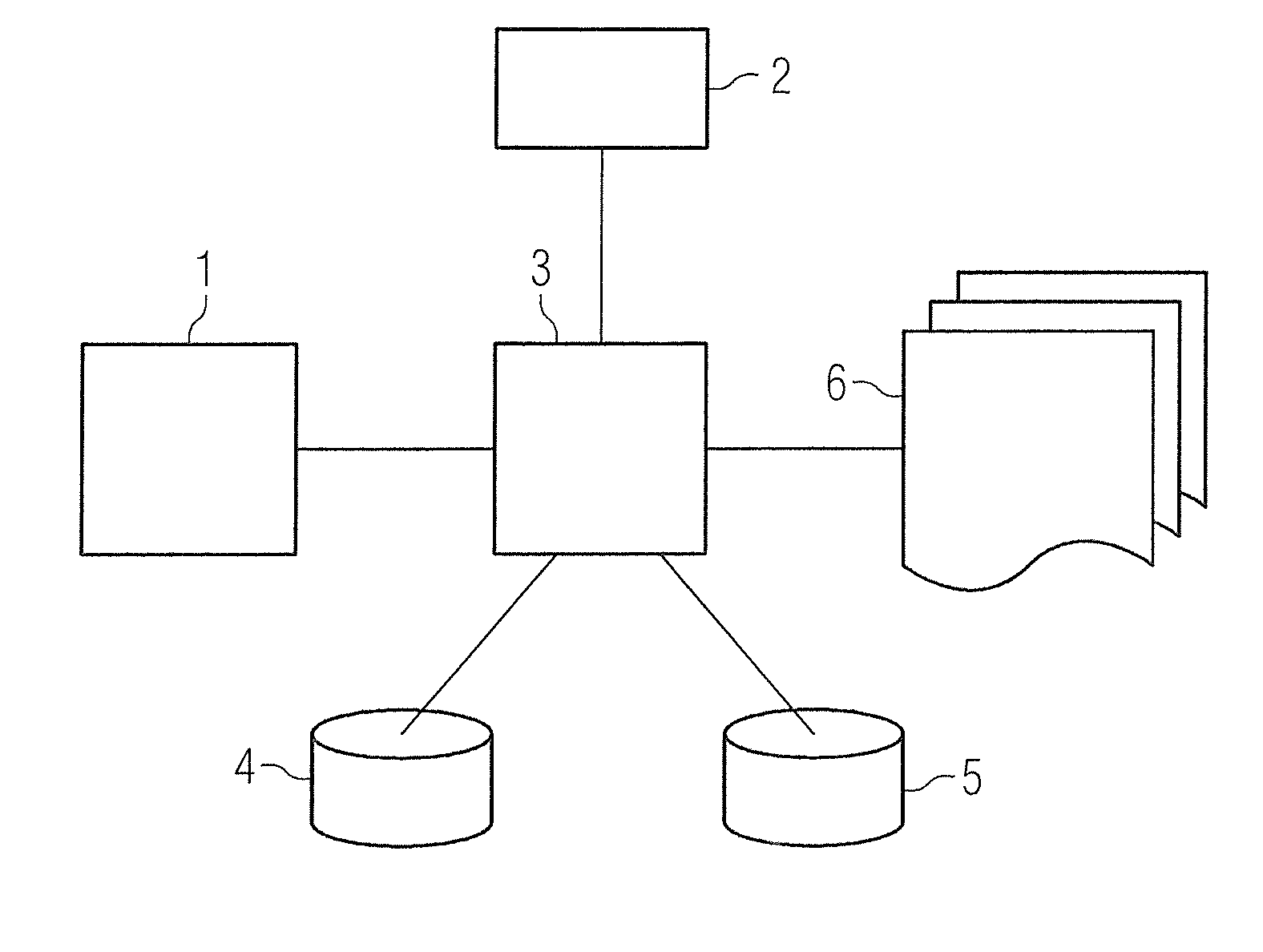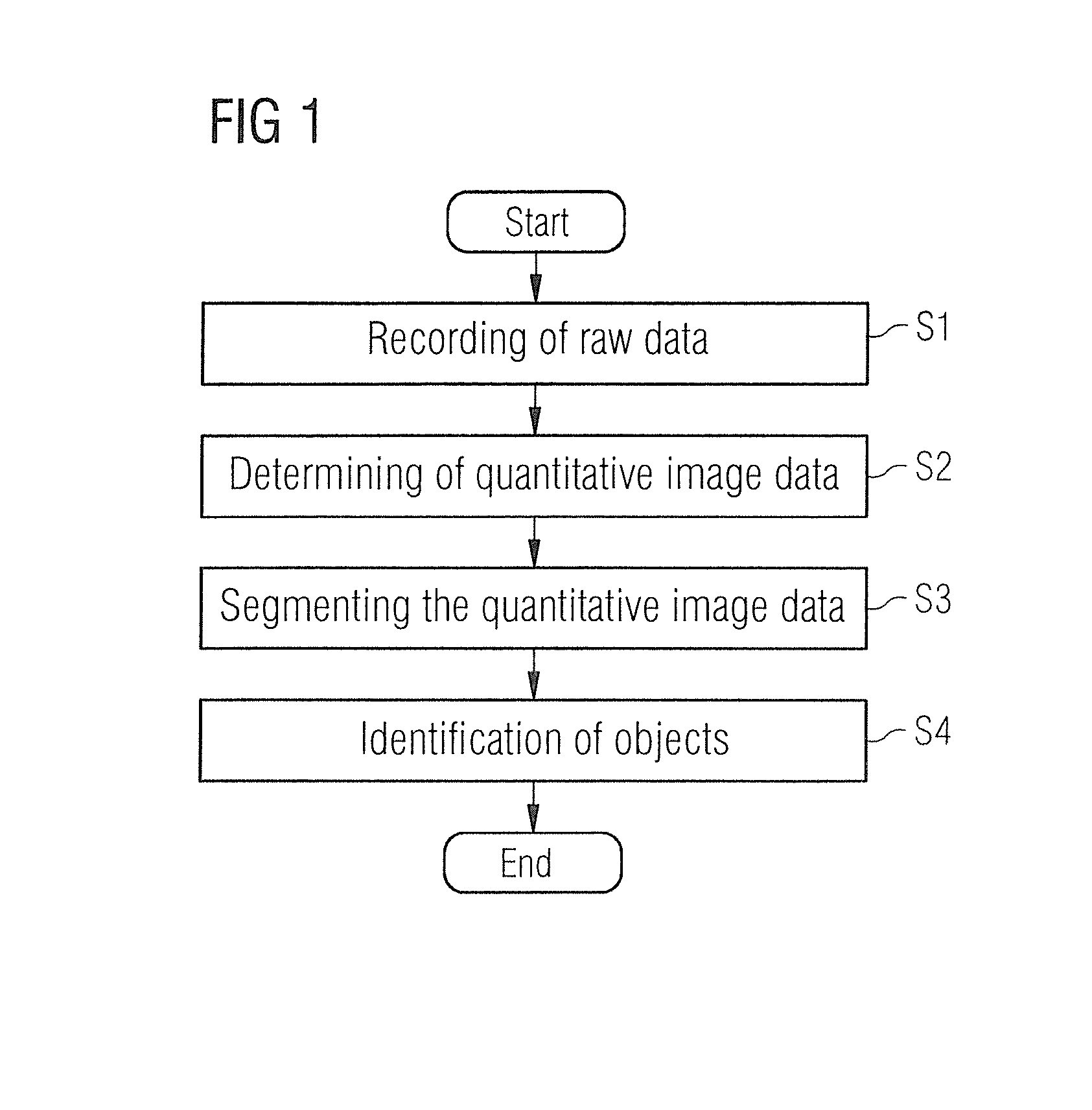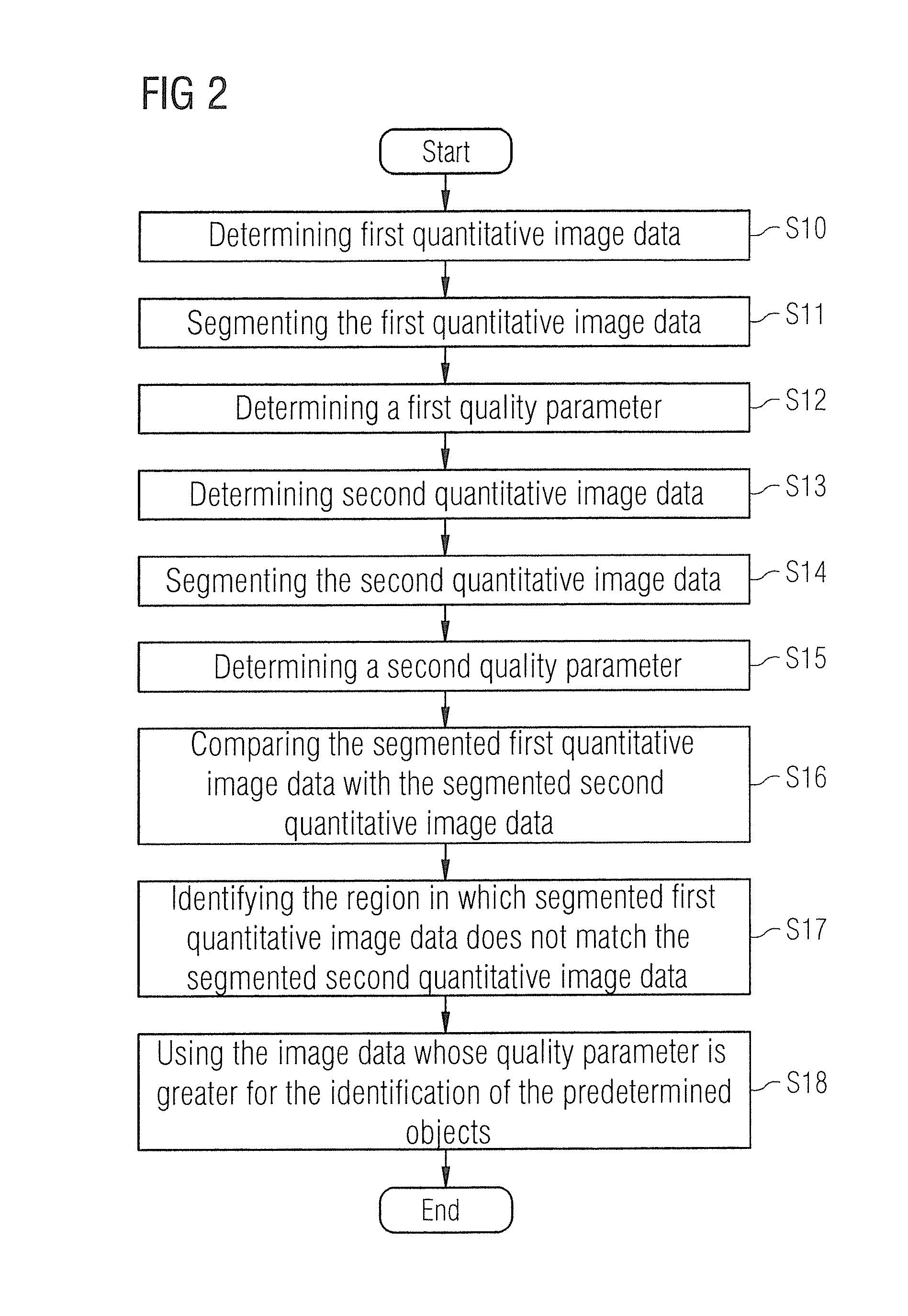Method and device for segmenting a medical examination object with quantitative magnetic resonance imaging
a medical examination object and quantitative magnetic resonance imaging technology, applied in the field of quantitative magnetic resonance imaging methods and devices, can solve the problems of prone to errors, further image differences, and qualitative contrast, and achieve the effect of avoiding the drawbacks of qualitative methods
- Summary
- Abstract
- Description
- Claims
- Application Information
AI Technical Summary
Benefits of technology
Problems solved by technology
Method used
Image
Examples
Embodiment Construction
[0035]FIG. 1 shows method steps for segmenting image data of an examination object. In the first step S1, the raw data of the examination object are acquired. The raw data include digitized MR signals that are produced during the scan sequence of the examination object. The signals are stored in a matrix (k-space) in a memory. The data stored in this way can be converted by a Fourier transformation for further processing.
[0036]The above-described raw data can include a large number of different items of information about the tissue. After the above-described transformation these items of information are available in the form of quantitative tissue parameters which are spatially and / or temporally resolved and include specific regions of the examination object or even the entire examination object.
[0037]These tissue parameters are combined in step S2 to form quantitative image data, it being possible for this to include for example T1, T2 or the spin density. T1 denotes the relaxation...
PUM
 Login to View More
Login to View More Abstract
Description
Claims
Application Information
 Login to View More
Login to View More - R&D
- Intellectual Property
- Life Sciences
- Materials
- Tech Scout
- Unparalleled Data Quality
- Higher Quality Content
- 60% Fewer Hallucinations
Browse by: Latest US Patents, China's latest patents, Technical Efficacy Thesaurus, Application Domain, Technology Topic, Popular Technical Reports.
© 2025 PatSnap. All rights reserved.Legal|Privacy policy|Modern Slavery Act Transparency Statement|Sitemap|About US| Contact US: help@patsnap.com



